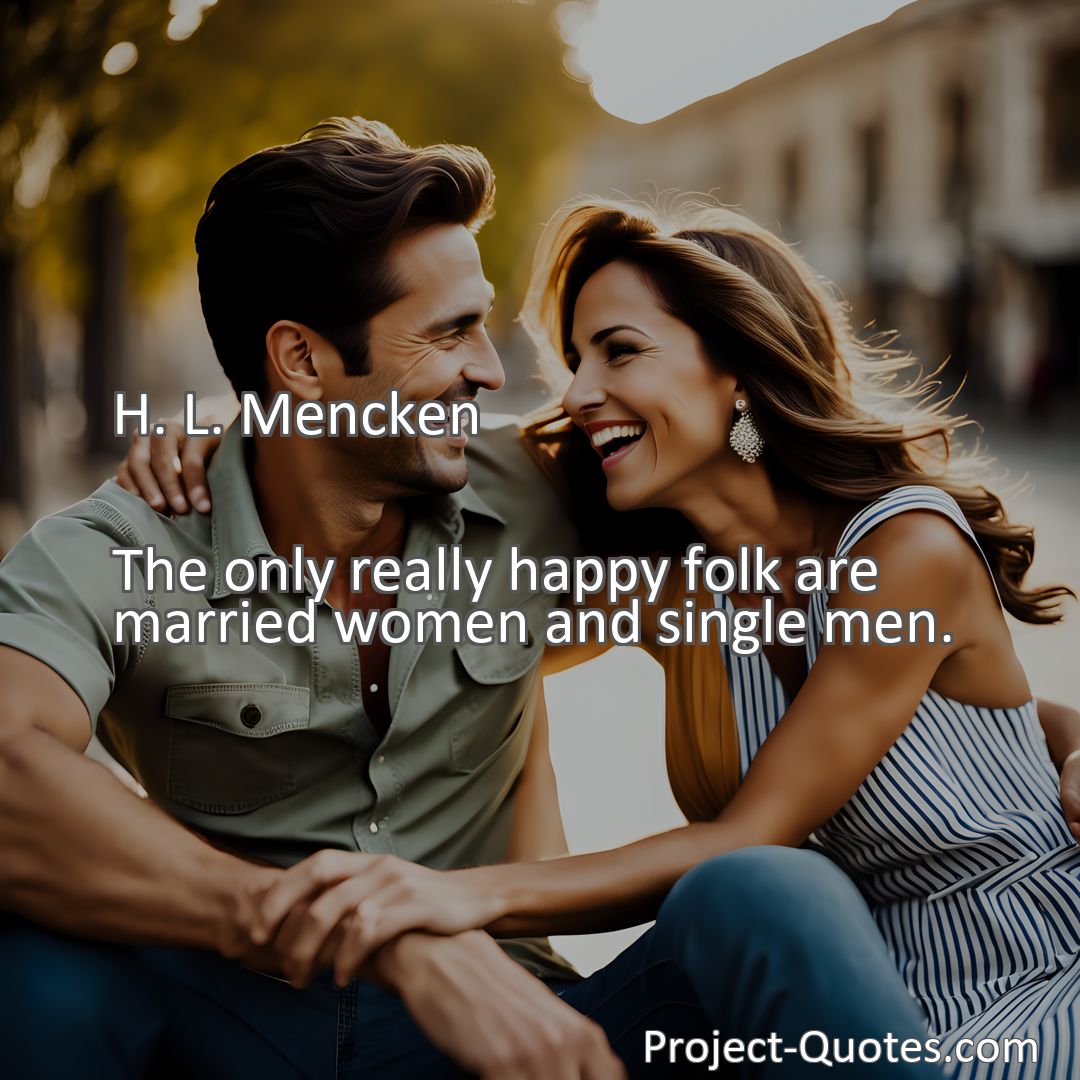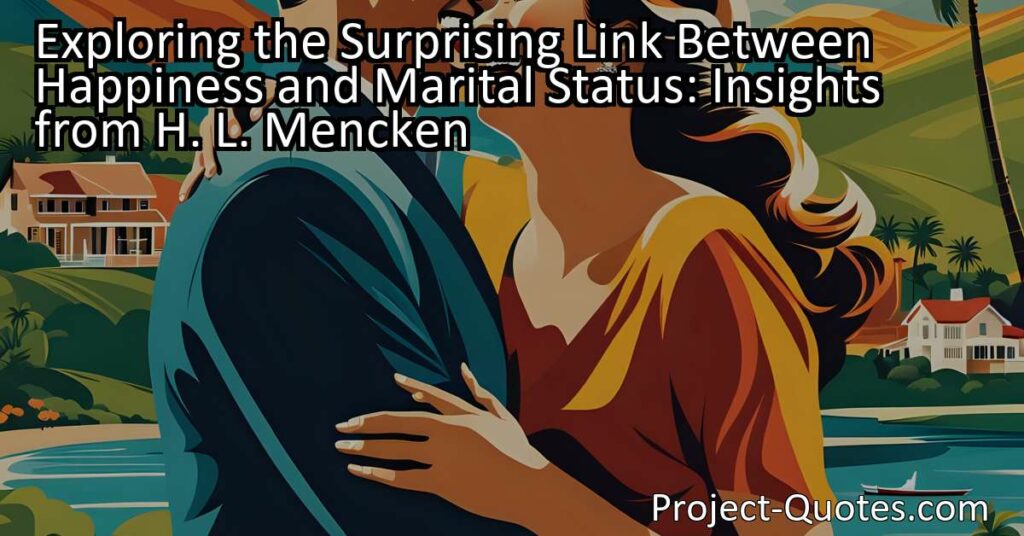The only really happy folk are married women and single men.
H. L. Mencken
Exploring the Surprising Link Between Happiness and Marital Status: Insights from H. L. Mencken H. L. Mencken challenges conventional beliefs about happiness and marriage with his quote about the happiness of married women and single men. He encourages us to question societal expectations and explore alternative perspectives on what brings true joy. Ultimately, Mencken reminds us that happiness is a personal journey, not dependent on relationship status.
Table of Contents
Meaning of Quote – The only really happy folk are married women and single men.
Have you ever heard the saying, “The only really happy folk are married women and single men”? Well, these wise words were spoken by none other than H. L. Mencken. In this quote, Mencken brings up an interesting observation about happiness and its connection to marital status. In a society where marriage is often portrayed as the ultimate goal, Mencken’s words may seem quite surprising. But let’s take a deeper look and explore why he might have made such a statement.
First and foremost, it is important to note that Mencken was known for his satirical and sometimes provocative writing. He often challenged societal norms and popular opinions, aiming to provoke thought and spark debate. With that in mind, we can view his quote as part of this larger intention. Mencken might have intended to make us question our preconceived notions about happiness and marriage.
When Mencken suggests that married women and single men are the happiest individuals, he challenges the common perception that happiness is directly tied to being in a committed relationship. In a society that places great emphasis on finding a life partner, it is easy to believe that this is the key to eternal bliss. However, Mencken’s assertion challenges this idea and encourages us to think outside the box.
Let’s start by considering married women. Mencken suggests that they are among the happiest people. This might seem perplexing to some, especially considering the common narrative that marriage brings about a slew of responsibilities and compromises. Yet, there is value in exploring why Mencken made this claim.
Marriage can provide a sense of companionship and emotional support that many find fulfilling. For some women, being in a committed relationship offers a stable foundation upon which to build a life. Sharing responsibility, laughter, and even hardships with a spouse can create a deep sense of connection and happiness. Additionally, marriage often brings the joy of starting a family, which for many women can be a source of tremendous fulfillment.
On the other hand, let’s dive into Mencken’s statement about single men. He claims that they, too, are among the only truly happy individuals. This might come as a surprise, as society has often painted the picture of a single man as someone who is unfulfilled or searching for a partner. However, Mencken implies that single men are content in their solitude.
For single men, being unattached can provide a sense of freedom and independence. They have the opportunity to explore their individuality, pursue personal passions, and build a life based solely on their own desires. Without the responsibilities that come with a committed relationship, single men can enjoy a greater degree of autonomy and flexibility. This can create a sense of happiness and satisfaction that is not reliant on another person’s presence.
It is important to remember that Mencken’s quote is a generalization and does not apply to every individual. Happiness is subjective and deeply personal, varying greatly from person to person. Some married women or single men may indeed be unhappy, while others who fall outside these categories might find true fulfillment.
Additionally, Mencken’s statement does not address the happiness of those who identify as LGBTQ+ or individuals who choose not to conform to traditional gender roles. In today’s society, there is a growing recognition that happiness can be found in a variety of ways, outside the confines of a binary understanding of relationships.
Ultimately, the true essence of Mencken’s statement lies in the importance of embracing individuality and not relying solely on societal expectations for happiness. It encourages us to question the narratives imposed upon us and open ourselves to alternative perspectives. Perhaps the key to happiness lies within ourselves, regardless of our relationship status.
In conclusion, H. L. Mencken’s quote about the only truly happy folk being married women and single men challenges conventional beliefs. It provokes us to question whether happiness is truly dependent on being in a committed relationship. By highlighting the potential sources of contentment for married women and single men, Mencken encourages us to explore the many paths to happiness. It is a reminder to embrace our individuality and not let societal expectations define our well-being. So, as we reflect on Mencken’s words, let us remember that happiness is a personal journey, and each of us has the power to define what brings us true joy.
I hope this quote inspired image brings you hope and peace. Share it with someone who needs it today!


